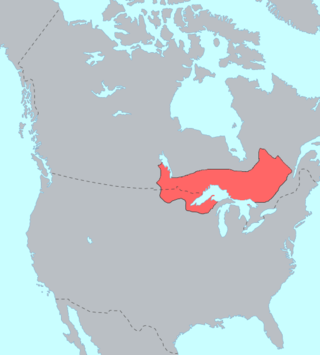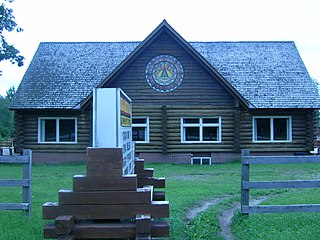
Steven J. Morello is an American lawyer who served as General Counsel of the Army from 2001 to 2004.

Steven J. Morello is an American lawyer who served as General Counsel of the Army from 2001 to 2004.
Steven J. Morello's mother was an enrolled member of The Sault Ste Tribe of Chippewa Indians in Michigan. [1] Morello was educated at the Edmund A. Walsh School of Foreign Service at Georgetown University, earning a bachelor's degree in 1974. [2] While at Georgetown, from 1972 to 1974, he worked as a Staff Assistant for Sen. Philip Hart (D)–Mich. [2] He then attending the University of Detroit Mercy, receiving a J.D. in 1977. He later earned a Master of Business Administration degree from Boston University.
From 1978 to 1987, Morello was a judge advocate in the Judge Advocate General's Corps, United States Army. [3] After leaving the Judge Advocate General's Corps, Morello worked as an attorney for Digital Equipment Corporation and the Northrop Corporation. [4] In 1991, Heinz Prechter hired Morello as the General Counsel of Prechter Holdings and of the American Sunroof Corporation, a position Morello held until 2001.
He earned an M.A. in Pastoral Studies from SHMS.
In 2001, President of the United States George W. Bush nominated Morello to be the first Native American General Counsel of the Army and, after Senate confirmation, Morello held this post from 2001 until September 2004. He took office only six weeks before the September 11 attack on the Pentagon.
Morello became the General Counsel of his own tribe, The Sault Ste Marie Tribe of Chippewa Indians in 2004, serving there until 2006. From 2007 to 2009, he served as Deputy Assistant Secretary for Intergovernmental Affairs and the First Director of the Office of Indian Energy Policy and Planning in the United States Department of Energy. [5] Since 2009, Morello has also been the principle of his own law firm, Native Law Group. [2]

Chippewa County is a county in the eastern Upper Peninsula of the U.S. state of Michigan. As of the 2020 census, the population was 36,785. The county seat is Sault Ste. Marie. The county is named for the Ojibwe (Chippewa) people, and was set off and organized in 1826. Chippewa County comprises the Sault Ste. Marie, MI micropolitan statistical area.

Sault Ste. Marie is a city in the Upper Peninsula of the U.S. state of Michigan. It is the county seat of Chippewa County and is the only city within the county. With a population of 13,337 at the 2020 census, it is the second-most populated city in the Upper Peninsula, behind Marquette. It is the primary city of the Sault Ste. Marie, MI Micropolitan Statistical Area, which encompasses all of Chippewa County and had a population of 36,785 at the 2020 census. Sault Ste. Marie was settled by mostly French colonists in 1668, making it the oldest city in Michigan.

St. Ignace is a city in the U.S. state of Michigan and the county seat of Mackinac County. The city had a population of 2,306 at the 2020 census. St. Ignace Township is located just to the north of the city, but the two are administered autonomously.

The Ojibwe, Ojibwa, Chippewa, or Saulteaux are an Anishinaabe people in what is currently southern Canada, the northern Midwestern United States, and Northern Plains. They are Indigenous peoples of the Subarctic and Northeastern Woodlands.

The Bay Mills Indian Community (BMIC), is an Indian reservation forming the land base of one of the many federally recognized Sault Ste. Marie bands of Chippewa.

The Sault Ste. Marie Tribe of Chippewa Indians, commonly shortened to Sault Tribe of Chippewa Indians or the more colloquial Soo Tribe, is a federally recognized Native American tribe in what is now known as Michigan's Upper Peninsula. The tribal headquarters is located within Sault Ste. Marie, the major city in the region, which is located on the St. Marys River.
Edison Sault Electric Company was a public utility that provided electricity to the eastern portion of Michigan's Upper Peninsula. Its service area covered four counties.

Garden River First Nation, also known as Ketegaunseebee, is an Ojibwa band located at Garden River 14 near Sault Ste. Marie, Ontario, Canada.
The Lake Superior Chippewa are a large number of Ojibwe (Anishinaabe) bands living around Lake Superior; this territory is considered part of northern Michigan, Wisconsin, and Minnesota in the United States. They migrated into the area by the seventeenth century, encroaching on the Eastern Dakota people who had historically occupied the area. The Ojibwe defeated the Eastern Dakota, who migrated west into the Great Plains after the final battle in 1745. While they share a common culture including the Anishinaabe language, this highly decentralized group of Ojibwe includes at least twelve independent bands in the region.

Attorney Lawrence J. Morris is the chief of staff and counselor to the president at The Catholic University of America and a retired United States Army colonel.
Same-sex marriage has been legal in Michigan since the U.S. Supreme Court's ruling in Obergefell v. Hodges on June 26, 2015. The U.S. state of Michigan had previously banned the recognition of same-sex unions in any form after a popular vote added an amendment to the Constitution of Michigan in 2004. A statute enacted in 1996 also banned both the licensing of same-sex marriages and the recognition of same-sex marriages from other jurisdictions.
Rob Capriccioso is a journalist and writer who founded the Indigenous Wire publication on the Substack platform. He is the first Indigenous journalist to receive a Substack Pro deal. Indigenous Wire covers policy, politics, media, economics and sovereignty issues.

Bruce Edward Kasold is an American lawyer and former judge. He was appointed as a judge to the United States Court of Appeals for Veterans Claims by President George W. Bush in December 2003. He served as the chief judge of the Court from August 2010 to August 2015. Kasold is a graduate of Bishop McGann-Mercy Diocesan High School in Riverhead, New York. He earned his undergraduate degree from the United States Military Academy at West Point in 1973, and his Juris Doctor from the University of Florida Law School in 1979. Kasold also earned a Master of Laws from the Georgetown University Law Center in 1982 and a Master of Laws equivalent from the Judge Advocate General's Legal Center and School in 1984.

The General Counsel of the Army is the chief legal officer of the U.S. Department of the Army and senior legal advisor to the Secretary of the Army.

The Kewadin Casinos are a set of casinos located in the US state of Michigan. The casinos are owned by the federally recognized Sault Tribe of Chippewa Indians. The primary property is located in Sault Ste. Marie, with additional locations on tribal lands in Christmas, Hessel, Manistique, and St. Ignace.

Kewadin Casino, Hotel and Convention Center is a casino, hotel, and convention center in Sault Ste. Marie, Michigan which opened in November 1985. It is one of the Kewadin Casinos, which are all owned and operated by the Sault Tribe of Chippewa Indians.
Elizabeth Kronk Warner is Dean and Professor of Law at the S.J. Quinney College of Law at the University of Utah. She was previously a professor of law at the University of Kansas School of Law, where she was also an associate dean, and is a member of the Sault Tribe of Chippewa Indians. She is known for her work on Native American law, including its relations to climate change and same-sex marriage in Native American jurisdictions.
The Treaty of Detroit of 1855 was a treaty between the United States Government and the Ottawa and Chippewa Nations of Indians of Michigan. The treaty contained provisions to allot individual tracts of land to Native people consisting of 40-acre (16 ha) plots for single individuals and 80-acre (32 ha) plots for families, outlined specific tracts which were assigned to the various bands and provided for the severance of the government consolidation of the Ottawa and Chippewa.

Angeline Boulley is a Chippewa (Ojibwe) author and has worked to improve education for Indigenous children. Her debut work, Firekeeper's Daughter, was named one of the top 100 young adult novels of all time by Time magazine, was a New York Times best seller, and won the Edgar Allan Poe Award for Best Young Adult Novel in 2022. The novel will be adapted into a miniseries by Higher Ground.